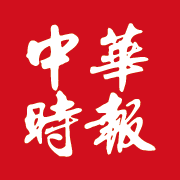Single-use, a term referring to products – often made of plastic –that are made to be used once and thrown away, has been named Collins Dictionary’s word of the year for 2018.
Collins, whose lexicographers monitor a 4.5bn-word corpus to come up with an annual list of new and notable words, said images such as those seen in the BBC’s Blue Planet II, in which albatrosses unwittingly feed their chicks plastic, had contributed to the increased usage of the term single-use. It also pointed to increased public awareness of the problems that single-use products bring. The European parliament recently backed a ban on single-use plastics such as straws, cotton swabs, disposable plates and bottles and cutlery; it is expected to come into effect in 2021. The UK is also planning to introduce a tax on plastic packaging.
“Images of plastic adrift in the most distant oceans, such as straws, bottles and bags, have led to a global campaign to reduce their use,” said the dictionary. “The word [single-use] has seen a four-fold increase since 2013.”
The dictionary defines single-use as “made to be used once only”, calling it “a term that describes items whose unchecked proliferation are blamed for damaging the environment and affecting the food chain”. It follows 2017’s word of the year, “fake news”, and 2016’s selection, Brexit.
Other contenders for word of the year in 2018 included plogging, a Scandinavian craze in which joggers also pick up litter; gammon, meaning “a person, typically male, middle-aged and white, with reactionary views, especially one who supports the withdrawal of Britain from the European Union”; and floss, the victory dance performed in the video game Fortnite.
Gaslight, meaning “to attempt to manipulate (a person) by continually presenting them with false information until they doubt their sanity”, has seen its usage increase 20-fold in the last five years, according to the dictionary, while MeToo, definined as “denoting a cultural movement that seeks to expose and eradicate predatory sexual behaviour, especially in the workplace”, was “transcending its original status as a social-media hashtag to become part of the language”.
“This has been a year where awareness and often anger over a variety of issues has led to the rise of new words and the revitalisation and adaptation of old ones,” said head of language content Helen Newstead. “It’s clear from this year’s words of the year list that changes to our language are dictated as much by public concern as they are by sport, politics, and playground fads. The words in this year’s list perhaps highlight a world at extremes – at one end, serious social and political concerns, and at the other, more light-hearted activities.”
All words in the list will be included on CollinsDictionary.com, and will be considered for inclusion in future print editions of the dictionary.
(THE GUARDIAN)

